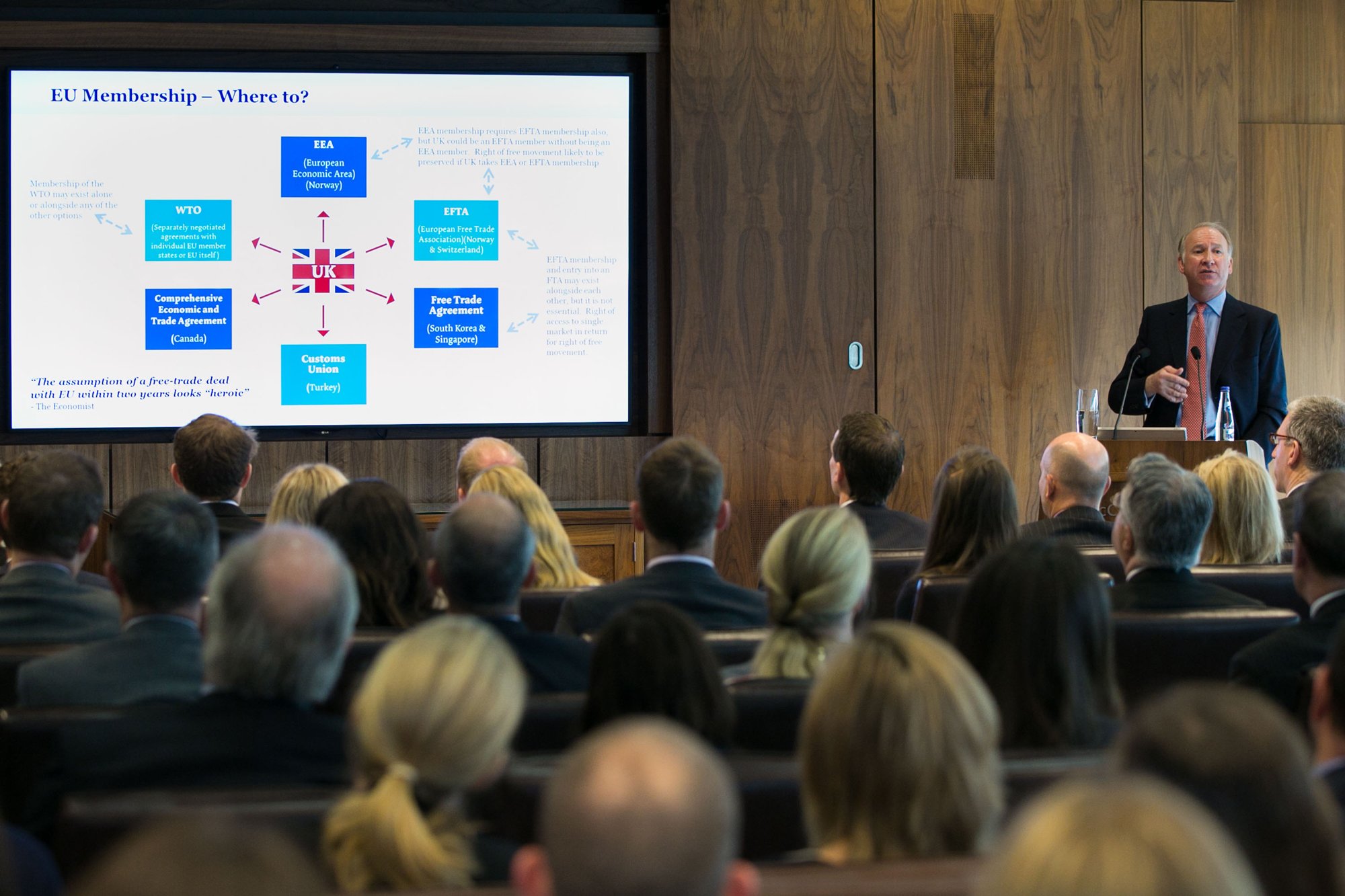McCann FitzGerald LLP
McCann FitzGerald highlights legal and regulatory uncertainty caused by Brexit
Premier Irish law firm, McCann FitzGerald, today hosted a seminar to identify the key challenges facing Irish businesses following last week’s UK referendum for Brexit. An overview of the new business landscape was presented and the resulting challenges and opportunities discussed.

Speaking at the event John Cronin, Partner – Finance and Head of McCann FitzGerald’s Brexit Group said “The vote by the UK to leave the EU has led to considerable legal, regulatory, economic and political uncertainty. Companies now need to take steps to ensure that they do what they can to minimise the risks that Brexit poses to their business.”
In light of the referendum result, McCann FitzGerald recommends that Irish companies should consider their business models and arrangements in order to identify legal and business risks, opportunities and steps that should be taken following the vote to leave. The primary aim of those reviews should be to identify the principal aspects of the company’s business that will be most affected by Brexit. Areas recommended for consideration from a legal perspective include market access; regulatory consents; banking and lending; employment; mergers & acquisitions; corporate transactions; environment and energy; and restructuring and insolvency.
Barry Devereux, Managing Partner, McCann FitzGerald said that, in the long term, the impact of Brexit will be marked: “It is most likely that legal and regulatory divergence in many trade and business sectors will increase over time and the impact will significantly affect investment and trading.” He noted that Brexit will likely cause particular problems for exporters of food produce, due to the significant weakening of sterling against the euro, resulting in Irish exports to the UK becoming more expensive for British consumers. Employment law is another area where Brexit may bring significant changes and uncertainty, as the current similarities between Irish and UK employment law makes it easier to manage businesses across both countries.
Mr Cronin said that the financial services industry was the most exposed of all UK industry sectors following the vote to leave and, while there may be short and medium term gains for the Irish financial services sector, the longer term position is uncertain and somewhat insecure.
The seminar hosted by McCann FitzGerald provided analysis in relation to a number of different legal areas and industry sectors, including energy, intellectual property, imports and exports and financial services.
McCann FitzGerald has been a leader in Irish business circles in promoting discussion on the subject of Brexit. In April of this year, McCann FitzGerald published a briefing for clients: "Brexit – Ireland/UK implications", which sets out in some detail the impact of a Brexit for Irish companies and businesses which could arise from a changed relationship between Ireland and the UK. Today was the fifth Brexit conference arranged by the firm since January of this year, with two of these being held in London.

Select how you would like to share using the options below